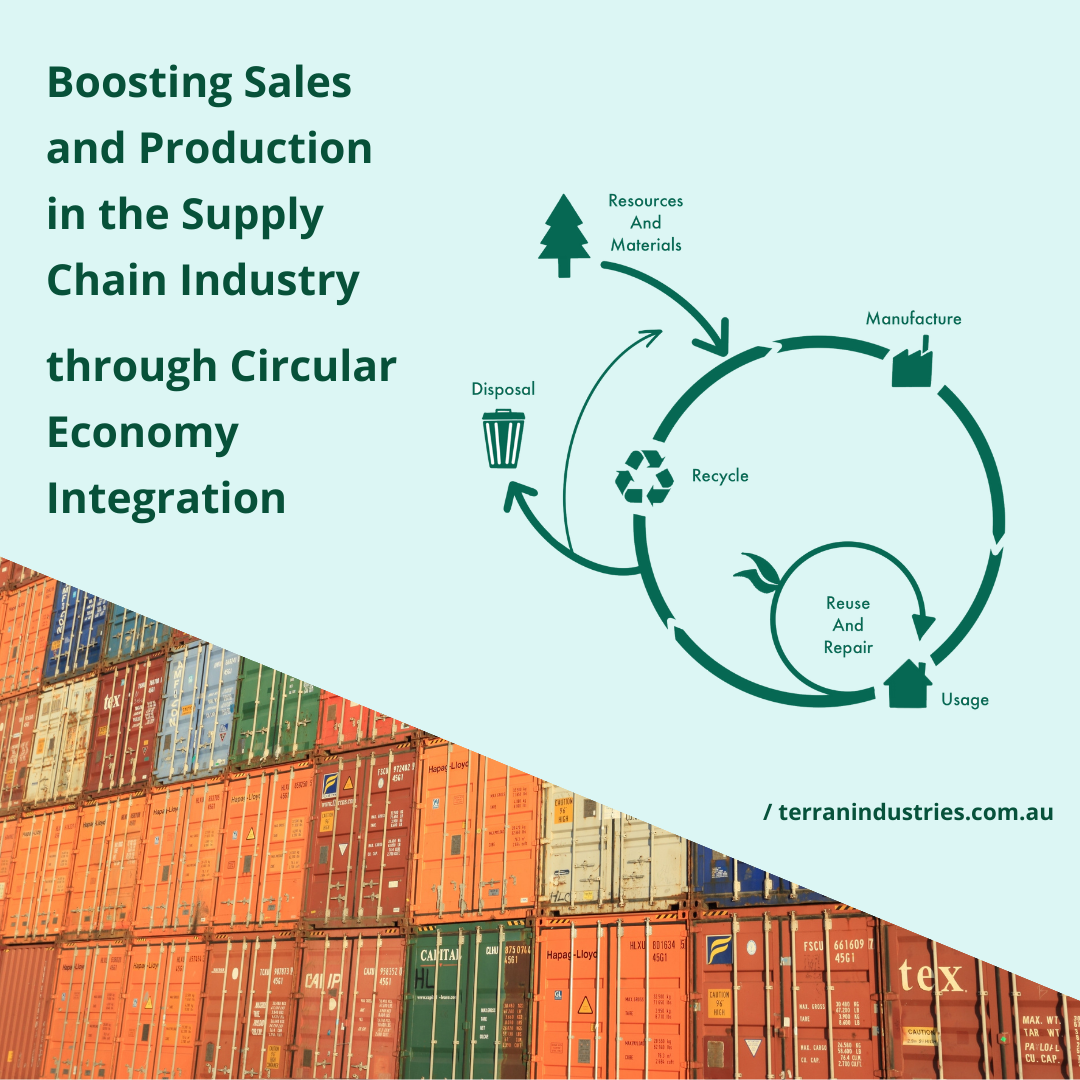BusinessCircular EconomyRecyclingSustainabilitySupply ChainBoosting Sales in Supply Chain through Circular Economy

In today's world, where sustainability and environmental responsibility have become paramount, businesses across various industries are recognising the importance of adopting circular economy frameworks. The supply chain industry, in particular, stands to benefit greatly from integrating circular economy principles.
By embracing a circular approach to resource management and product lifecycle, companies can not only reduce their environmental footprint but also drive sales and increase production efficiency.
In this article, we will explore how the integration of circular economy frameworks can bring about these positive outcomes for the supply chain industry.
Resource Optimisation and Cost Reduction
A key aspect of circular economy integration lies in optimising resource utilisation. By implementing strategies such as recycling, reusing, and remanufacturing, supply chain companies can extend the lifespan of materials and products. This approach reduces the need for virgin resources, minimising extraction costs, and lowering overall procurement expenses. By adopting circular practices, companies can also tap into new revenue streams through the sale of recycled materials, recovered components, or refurbished products, generating additional income and offsetting operational costs.
Enhanced Supply Chain Resilience
The integration of circular economy frameworks can enhance supply chain resilience by reducing dependence on scarce or volatile resources. By diversifying sourcing strategies, and implementing circular models, companies can mitigate the risks associated with raw material price fluctuations, geopolitical tensions, and supply chain disruptions.
Embracing circular practices enables supply chain companies to build a more robust and resilient network, reducing vulnerability to external shocks and ensuring a consistent supply of materials.
Improved Customer Engagement and Loyalty
Consumers are increasingly demanding sustainable products and services. By integrating circular economy principles, supply chain companies can demonstrate their commitment to environmental responsibility, which resonates strongly with socially conscious consumers. Circular practices, such as product take-back programs, enable companies to engage customers throughout the entire lifecycle of a product. This enhanced interaction fosters loyalty and brand affinity, leading to repeat purchases and positive word-of-mouth recommendations. Furthermore, by offering refurbished or remanufactured products, companies can tap into a growing market segment of eco-conscious consumers who prioritise circularity over conventional linear consumption models.
Innovation and Competitive Advantage
Circular economy integration encourages companies to rethink traditional business models and explore innovative approaches. Through collaboration and partnerships, supply chain companies can share knowledge, expertise, and resources to develop innovative solutions that address sustainability challenges. By investing in research and development focused on circular practices, companies can create new products, services, and technologies that meet the evolving demands of customers while reducing environmental impact. This commitment to innovation provides a competitive advantage, enabling supply chain companies to differentiate themselves in the marketplace and attract environmentally conscious consumers.
Regulatory Compliance and Risk Mitigation
Governments worldwide are increasingly implementing regulations and policies aimed at promoting sustainability and reducing waste. By proactively integrating circular economy frameworks into their operations, supply chain companies can ensure compliance with these evolving regulations. By taking early action, companies can minimise the financial and operational risks associated with sudden regulatory changes. Moreover, by aligning their practices with regulatory requirements, companies can build a positive reputation and establish themselves as responsible corporate citizens, attracting potential investors and customers who value sustainable business practices.
Conclusion
The integration of circular economy frameworks represents a significant opportunity for the supply chain industry to boost sales and production while aligning with environmental and societal goals. By optimising resource utilisation, enhancing supply chain resilience, engaging customers, fostering innovation, and ensuring regulatory compliance, companies can gain a competitive edge in the marketplace.
As the demand for sustainable products and services continues to grow, embracing circular economy principles is not only a responsible choice but also a strategic imperative for the supply chain industry.

Evannah Jayne
Founder & CEO
A passion for sustainability and a desire to change the world, Evannah seeks to raise awareness of the important issues surrounding our planet today.
